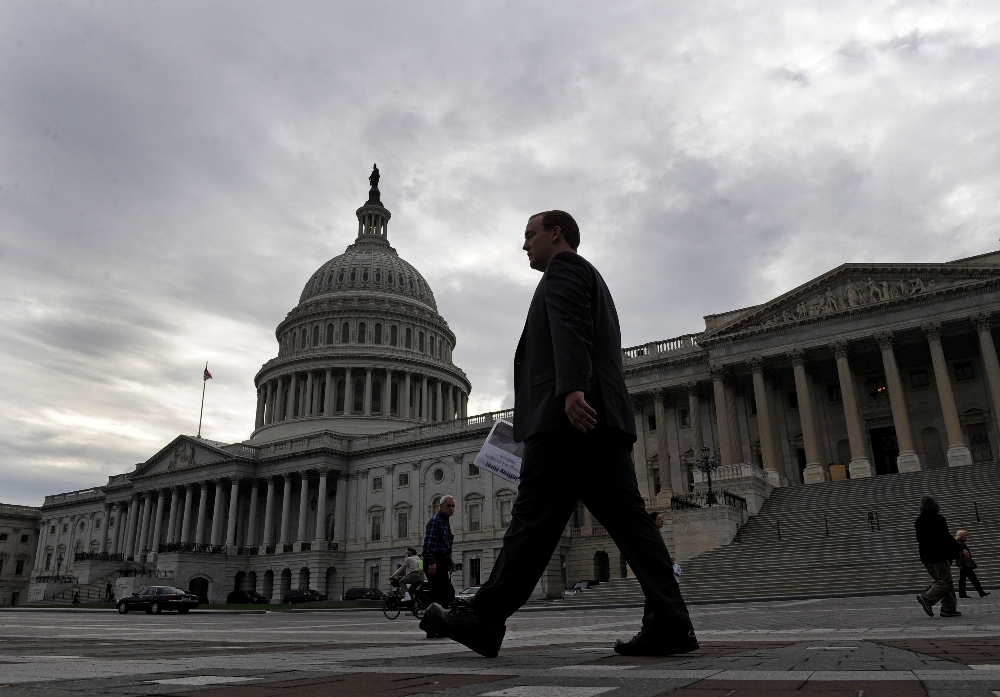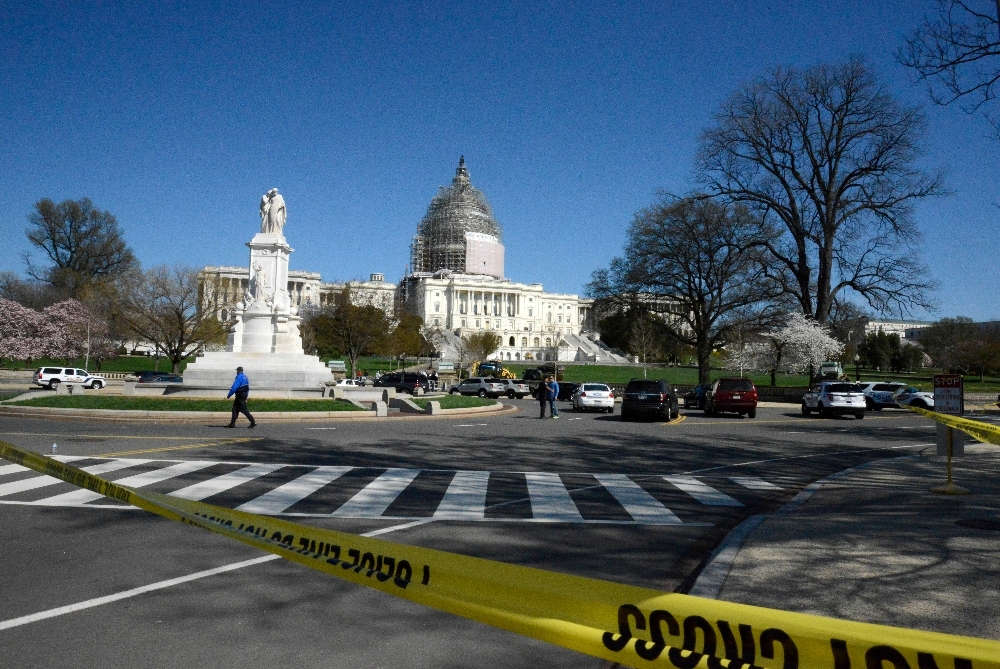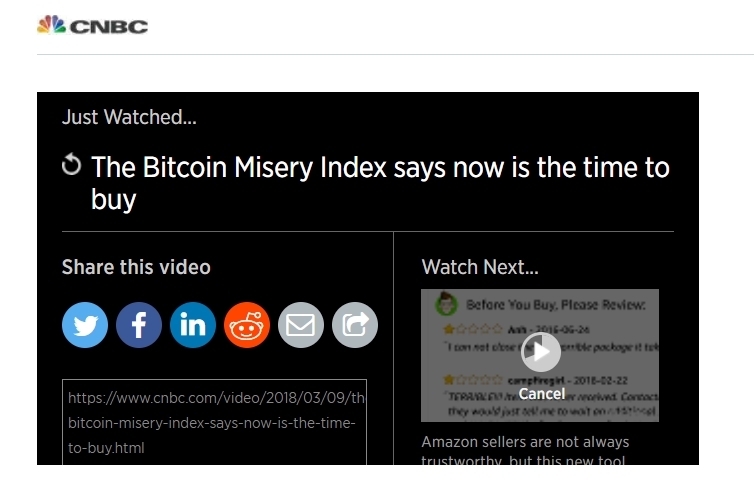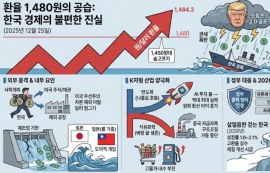Clarifying Lawful Overseas Use of Data (전문) 비트코인 -8.05%, 이더리움 -10.73 % 리플 -8.73 % 비트코인 캐시 -9.09 % 라이트코인 -10.35 % 이오스 -18.03 % 모네로 -10.18 % 대시 -11.62 % 이더리움 클래식 -14.39 % 퀀텀 -15.49 % 아이콘 -18.79 % 비트코인 골드 -11.85 % 제트캐시 -11.13 %
![[긴급] 가상화폐 시세 18% 폭락, 미국 Cloud법 정체는? IT 금융거래정보 실시간 추적… 비트코인 이오스 리플 등 암호화폐 흔들 Clarifying Lawful Overseas Use of Data (전문) 비트코인 -8.05%, 이더리움 -10.73 % 리플 -8.73 % 비트코인 캐시 -9.09 % 라이트코인 -10.35 % 이오스 -18.03 % 모네로 -10.18 % 대시 -11.62 % 이더리움 클래식 -14.39 % 퀀텀 -15.49 % 아이콘 -18.79 % 비트코인 골드 -11.85 % 제트캐시 -11.13 %](https://nimage.g-enews.com/phpwas/restmb_allidxmake.php?idx=5&simg=20180327042855029804a01bf698f1209125250.jpg) 이미지 확대보기
이미지 확대보기한국시각 27일 새벽 미국의 주요 아호화폐거래소와 한국의 빗썸 거래소등에 따르면 비트코인 등 거의 대부분의 가상화폐들이 일제히 떨어지고 있다.
비트코인은 이시간 현재 882만 6000 원에서 거래되고 있다. 마의 시세라고 알려져온 900만원선이 또 붕괴된 것이다.
비트코인은 전일대비 77만3000 원, 비율로는 무려 8.05 % 떨어졌다.
이오스는 무려 18%이상 떨어졌다. 그야말로 가상화폐 대 폭락이다.
![[긴급] 가상화폐 시세 18% 폭락, 미국 Cloud법 정체는? IT 금융거래정보 실시간 추적… 비트코인 이오스 리플 등 암호화폐 흔들 Clarifying Lawful Overseas Use of Data (전문) 비트코인 -8.05%, 이더리움 -10.73 % 리플 -8.73 % 비트코인 캐시 -9.09 % 라이트코인 -10.35 % 이오스 -18.03 % 모네로 -10.18 % 대시 -11.62 % 이더리움 클래식 -14.39 % 퀀텀 -15.49 % 아이콘 -18.79 % 비트코인 골드 -11.85 % 제트캐시 -11.13 %](https://nimage.g-enews.com/phpwas/restmb_allidxmake.php?idx=5&simg=20180327042900010204a01bf698f1209125250.jpg) 이미지 확대보기
이미지 확대보기가상화폐 시세
코인 시가총액 실시간 시세 변동률 (%) 24시간 거래금액 보조지표 매수 / 매도
비트코인 145조 4039억 8,826,000 원 -773,000 원 (-8.05 %) (≈ 95,714,115,862 원) 보조지표 매수 매도
리플 24조 8582억 648 원 -62 원 (-8.73 %) (≈ 90,511,670,372 원) 보조지표 매수 매도
비트코인 캐시 16조 4639억 1,000,000 원 -100,000 원 (-9.09 %) (≈ 4,028,609,124 원) 보조지표 매수 매도
라이트코인 8조 7174억 161,100 원 -18,600 원 (-10.35 %) (≈ 3,355,322,412 원) 보조지표 매수 매도
이오스 4조 4797억 6,000 원 -1,320 원 (-18.03 %) (≈ 132,218,606,610 원) 보조지표 매수 매도
모네로 3조 2435억 211,700 원 -24,000 원 (-10.18 %) (≈ 1,552,934,274 원) 보조지표 매수 매도
대시 3조 2122억 414,500 원 -54,500 원 (-11.62 %) (≈ 720,271,413 원) 보조지표 매수 매도
이더리움 클래식 1조 7084억 17,420 원 -2,930 원 (-14.39 %) (≈ 10,978,870,174 원) 보조지표 매수 매도
퀀텀 1조 4785억 17,120 원 -3,140 원 (-15.49 %) (≈ 23,712,671,983 원) 보조지표 매수 매도
아이콘 1조 2292억 3,192 원 -739 원 (-18.79 %) (≈ 44,672,474,604 원) 보조지표 매수 매도
비트코인 골드 9826억 59,500 원 -8,000 원 (-11.85 %) (≈ 6,067,549,329 원) 보조지표 매수 매도
제트캐시 8288억 239,500 원 -30,000 원 (-11.13 %) (≈ 534,107,859 원) 보조지표 매수 매도
![[긴급] 가상화폐 시세 18% 폭락, 미국 Cloud법 정체는? IT 금융거래정보 실시간 추적… 비트코인 이오스 리플 등 암호화폐 흔들 Clarifying Lawful Overseas Use of Data (전문) 비트코인 -8.05%, 이더리움 -10.73 % 리플 -8.73 % 비트코인 캐시 -9.09 % 라이트코인 -10.35 % 이오스 -18.03 % 모네로 -10.18 % 대시 -11.62 % 이더리움 클래식 -14.39 % 퀀텀 -15.49 % 아이콘 -18.79 % 비트코인 골드 -11.85 % 제트캐시 -11.13 %](https://nimage.g-enews.com/phpwas/restmb_allidxmake.php?idx=5&simg=20180327042848011994a01bf698f1209125250.jpg) 이미지 확대보기
이미지 확대보기미국 뉴욕증시 전문가들은 이날 가상화폐 폭락의 요인으로 미국 의회의 cloud 법 통과를 들고 있다.
미국 의회는 이날 새해 예산안을 처리하면서 cloud 법을 통과시켰다.
cloud 법은 해외의 정보를 감독당국이 추적할 수 있도록 한 법이다.
cloud 법을 활용하기에 따라서는 가상화폐 계좌도 들여다 볼 수 있을 것으로 보인다.
다음은 Clarifying Lawful Overseas Use of Data 법 요약이다 ㅇ
Monday, March 26, 2018
On March 23, 2018, Congress passed, and President Trump signed into law, the Clarifying Lawful Overseas Use of Data (“CLOUD”) Act, which creates a new framework for government access to data held by technology companies worldwide.
The CLOUD Act, enacted as part of the Consolidated Appropriations Act, has two components.
Part I: Extraterritorial Reach of U.S. Orders and Comity Rights for Providers
The first part of the CLOUD Act provides that orders issued pursuant to the Electronic Communications Privacy Act (“ECPA”) can reach data regardless of where that data is stored. This portion of the law addresses the question at the heart of United States v. Microsoft, the Supreme Court case that was argued on February 27.*
Part I of the Act also creates a new statutory mechanism by which technology companies can challenge warrants based on the material risk of a conflict with the laws of qualified foreign countries—specifically, those countries that enter into bilateral agreements of the type contemplated in Part II of the Act and that afford reciprocal comity rights to the United States (referred to as a “qualifying foreign governments”). The CLOUD Act also preserves the common law rights of providers to bring comity challenges based on conflicts of laws with other countries (i.e., those that are not “qualifying foreign governments” under the Act).
Under this new statutory comity framework, a provider may file a motion to modify or quash U.S. legal process if it reasonably believes: (1) the customer or subscriber is not a U.S. person and does not reside in the United States, and (2) the required disclosure would create a material risk of violating the laws of a qualifying foreign government.
In any such challenge, a court may modify or quash the legal process upon finding that: (1) the required disclosure would violate the qualifying foreign government’s law, and (2) the interests of justice dictate that the legal process should be modified or quashed. In conducting this second inquiry, courts are to consider a series of comity factors set out in the statute. During the pendency of such a challenge, the provider may notify the qualifying foreign government of the existence of the legal process and thereby allow the foreign government to raise any concerns directly with the U.S. Government.
Part II: Framework for Bilateral Agreements on Cross-Border Data Requests
The second part of the CLOUD Act creates a framework for new bilateral agreements with foreign governments for cross-border data requests. Under these bilateral agreements, the United States and participating foreign governments would remove legal restrictions that otherwise prohibit technology providers from complying with the other country’s legal requests.
Previously, governments had to invoke mutual legal assistance treaties (“MLATs”) to obtain evidence stored in another country. Under the MLAT process, a foreign government seeking information from a U.S. provider would ask the U.S. Department of Justice to obtain a U.S. court order for that information. Part II of the CLOUD Act creates a new framework that instead allows foreign governments to serve legal process directly on U.S. providers, without the necessity of first making an MLAT request to the U.S. Department of Justice.
Because the CLOUD Act has no effect on a foreign government’s jurisdiction over U.S. companies, any obligation by a provider to comply with a foreign order issued pursuant to such an agreement must arise under the foreign law. In other words, the CLOUD Act removes barriers that might otherwise prohibit a U.S. provider from complying with a foreign government’s order, but the CLOUD Act does not compel a U.S. provider to comply with any foreign order.
Not all governments can enter into bilateral agreements under the CLOUD Act. Before a country may do so, the Attorney General must submit certain written certifications to Congress regarding the foreign country. Those certifications must find that the country meets specific criteria establishing that its domestic law affords robust substantive and procedural protections for privacy and civil liberties. Additionally, the foreign government must adopt procedures to minimize the acquisition and retention of information about U.S. persons and cannot impose a decryption obligation on providers through the agreement.
Bilateral agreements must also contain a number of limits on the types of orders that may be submitted by the foreign government directly to a U.S. provider, including:
Orders must be for the purpose of obtaining information relating to a serious crime, including terrorism.
Orders must identify a specific person, account, address, device, or other identifier.
Orders must comply with the foreign government’s domestic law.
Orders must be based on requirements for a reasonable justification based on articulable and credible facts.
Orders must be subject to judicial review prior to, or in enforcement proceedings regarding, enforcement of the order.
Orders for interceptions must be for a fixed and limited time, may not last longer than reasonably necessary to accomplish the order’s purposes, and may only be issued if the same information could not be obtained by a less obtrusive method.
Orders may not be used to infringe freedom of speech.
![[긴급] 가상화폐 시세 18% 폭락, 미국 Cloud법 정체는? IT 금융거래정보 실시간 추적… 비트코인 이오스 리플 등 암호화폐 흔들 Clarifying Lawful Overseas Use of Data (전문) 비트코인 -8.05%, 이더리움 -10.73 % 리플 -8.73 % 비트코인 캐시 -9.09 % 라이트코인 -10.35 % 이오스 -18.03 % 모네로 -10.18 % 대시 -11.62 % 이더리움 클래식 -14.39 % 퀀텀 -15.49 % 아이콘 -18.79 % 비트코인 골드 -11.85 % 제트캐시 -11.13 %](https://nimage.g-enews.com/phpwas/restmb_allidxmake.php?idx=5&simg=20180327042906010334a01bf698f1209125250.jpg) 이미지 확대보기
이미지 확대보기Foreign governments that enter such bilateral agreements must also agree to periodic compliance reviews by the U.S. Government.
Finally, the CLOUD Act contains specific provisions addressing how these bilateral agreements will be entered into and renewed. Under those provisions, once the Attorney General certifies a new agreement, it is to be considered by Congress. The agreement will enter into force unless Congress enacts a joint resolution of disapproval within 180 days. Every five years, the Attorney General is to review his or her determination that a foreign country meets the requirements for entering into a bilateral agreement. If he renews that determination, he is to submit a report to Congress containing the reasons for the renewal, any substantive changes to the agreement or to foreign law, and how the agreement has been implemented and what problems or controversies, if any, have arisen.
* Covington represents Microsoft Corporation in United States v. Microsoft, No. 17-2.
김대호 소장 / 경제학 박사 tiger8280@g-enews.com













































